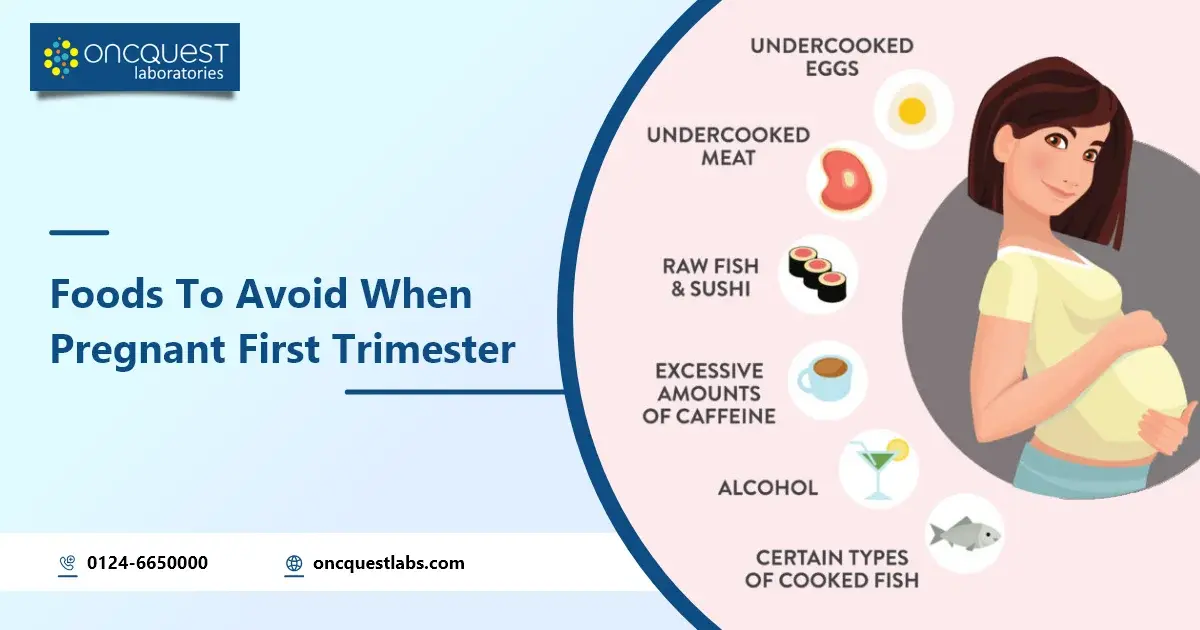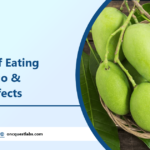Pregnancy is a miraculous journey filled with excitement and anticipation. The first trimester is a crucial time when your baby’s development begins to take shape. While proper nutrition is essential for a healthy pregnancy, it’s equally important to be mindful of the foods you consume. In this blog, we’ll guide you through the foods to avoid during the first trimester to ensure the well-being of both you and your baby. From raw seafood to caffeine, we’ll explore the dietary choices that can impact your pregnancy. So, let’s delve into the dos and don’ts of eating safely during this significant phase of your life.
Contents
What Foods To Avoid By Pregnant In First Trimester
In the first trimester of pregnancy, it’s important to be mindful of your diet to ensure the health and development of your baby. Here’s a list of foods to avoid during this period:
Raw or Undercooked Meat, Eggs, and Seafood
During the first trimester of pregnancy, it’s important to avoid eating meat, eggs, and seafood that aren’t fully cooked. When these foods are not properly cooked, they can have tiny germs called bacteria, such as Salmonella and Listeria, in them. These bacteria can make you sick, and that’s not good for your baby. Foodborne illnesses caused by these bacteria can be harmful during pregnancy. So, to keep you and your baby safe, always make sure that your meat, eggs, and seafood are cooked thoroughly before eating them. It’s a simple step to protect your health and your baby’s well-being.
High-Mercury Fish
Some types of fish, like shark, swordfish, and king mackerel, have something called mercury in them. Mercury is like a metal that’s not good for your baby when you’re pregnant in the first few months. If you eat fish with a lot of mercury, it can hurt your baby’s growth. So, it’s better to avoid these fish. Instead, choose fish that have lower levels of mercury, like salmon or trout. That way, you can enjoy fish safely and help your baby grow healthily during this important time of pregnancy.
Deli Meats
Deli meats, like ham and turkey slices, can sometimes have something called Listeria in them. Listeria is a type of bacteria that can be harmful to you and your baby if you’re pregnant. So, it’s safer to be careful. If you want to eat deli meats, it’s best to heat them up until they’re really hot and steaming. This kills the Listeria and makes the meat safe to eat. It’s an extra step to keep your pregnancy healthy and your baby safe from any potential problems that could come from Listeria.
Unpasteurized Dairy
Unpasteurized dairy means milk and cheese made from raw milk that hasn’t been treated to kill harmful germs like Listeria. Pasteurization is a method where they heat the dairy to make it safe without changing its taste or nutrition. Listeria is a germ that can make people sick, especially if it’s in raw milk. When you eat dairy with Listeria, you can get a bad illness called listeriosis. This can be very dangerous, especially for pregnant women, babies, older folks, and those with weak immune systems. Symptoms can vary from a tummy ache to severe sickness or even death. In many places, there are rules to make sure dairy is safe. Pasteurization is often a must for dairy products sold in stores. It’s because it really lowers the risk of people getting sick from dairy. So, choosing pasteurized dairy like milk and cheese is a smart way to stay safe from Listeria. Some people might like the taste of raw milk or cheese, but they come with a higher risk of getting sick. It’s best, especially for pregnant women, kids, and older people, to avoid raw dairy to protect their health.
Caffeine
Caffeine is a natural booster found in things like coffee, tea, and chocolate. It helps you feel more awake and less tired. People use it to stay focused. It’s best not to have too much, around 200-300 milligrams a day is good. But remember, not everyone can have the same amount. Some can handle more, others less. It depends on things like your genes and how healthy you are. If you have too much caffeine often, you might get used to it. Then, if you stop suddenly, it can give you headaches and make you grumpy. So, it’s best to cut down slowly. Be careful not to have caffeine close to bedtime, or it might keep you up at night. Enjoy caffeine, but don’t have too much.
Alcohol
In conclusion, abstaining from alcohol during the first trimester of pregnancy and throughout gestation is a fundamental step to safeguard the well-being of both the expectant mother and the developing fetus. Fetal Alcohol Spectrum Disorders (FASD) can result in lifelong challenges for the child, making it imperative to avoid any potential harm during the critical period of organ development. Since there is no known safe level of alcohol consumption during pregnancy, complete abstinence is the recommended and safest course of action. Recognizing the variability in individual responses to alcohol, seeking medical advice and adhering to healthcare recommendations is essential for a healthy pregnancy and a positive outcome for both mother and child.
High-Sugar and Heavily Processed Foods
Processed and sugary foods can wreak havoc on blood sugar levels, contributing to energy spikes and crashes. These options often lack essential nutrients and can lead to weight gain and other health issues. Instead, it’s advisable to prioritize a diet that is balanced and rich in essential nutrients. This means opting for whole, unprocessed foods like fruits, vegetables, whole grains, lean proteins, and healthy fats. Such choices provide a steady and sustained source of energy, support overall health, and help regulate blood sugar levels. Embracing a diet filled with nutrient-rich options is a proactive step towards better well-being and long-term health. By being cautious about these foods and making informed choices, you can support a healthy pregnancy during the first trimester. Always consult with your healthcare provider for personalized advice and guidelines.
Conclusion
In conclusion, the first trimester of pregnancy is a crucial period for both the mother and the developing baby, and it’s essential to be mindful of your diet to ensure a healthy pregnancy. Some foods are best avoided during this time to minimize potential risks and complications. These include high-mercury fish, raw or undercooked seafood, unpasteurized dairy products, deli meats, excessive caffeine, and alcohol.
While it’s essential to be cautious about these foods, remember that individual dietary needs can vary. Consult with your healthcare provider for personalized guidance on your diet during pregnancy. Prioritizing a well-balanced, nutrient-rich diet and staying informed about safe food choices are key steps to promote a healthy first trimester and a successful pregnancy journey.
FAQ’s Frequently Asked Questions
What fruit is not good for pregnancy?
Most fruits are great during pregnancy because they’re packed with vitamins and fiber. However, it’s best to stay away from papaya, especially early on, as it has something called latex that might cause contractions. Also, make sure you wash and prepare fruits properly to avoid getting sick. If you’re not sure which fruits to eat, talking to a doctor or a nutrition expert can help you choose the right ones for your pregnancy.
Which vegetables are avoided during pregnancy?
During pregnancy, it’s generally safe to enjoy a wide variety of vegetables. However, there are a few precautions to keep in mind. Avoid raw sprouts, like alfalfa and mung bean sprouts, as they may carry a risk of foodborne illnesses. High levels of vitamin A in excessive amounts of sweet potatoes can also be a concern, so moderation is key. It’s advisable to thoroughly wash and cook vegetables to reduce any potential risk. Consulting with a healthcare provider or a nutritionist can offer tailored advice on vegetable choices for a healthy pregnancy.
Which food is best in early pregnancy?
Folate-rich foods, lean proteins, dairy or alternatives, whole grains, and a variety of fruits and vegetables are the cornerstones of a healthy pregnancy diet. These choices ensure you receive essential nutrients crucial for your baby’s growth and development.
Why is papaya not good for pregnancy?
Papaya is not recommended during pregnancy, particularly in the early stages, because it contains an enzyme called papain, which may trigger uterine contractions. This can potentially lead to complications, including miscarriage. To err on the side of caution, it’s best to avoid papaya until after pregnancy.





